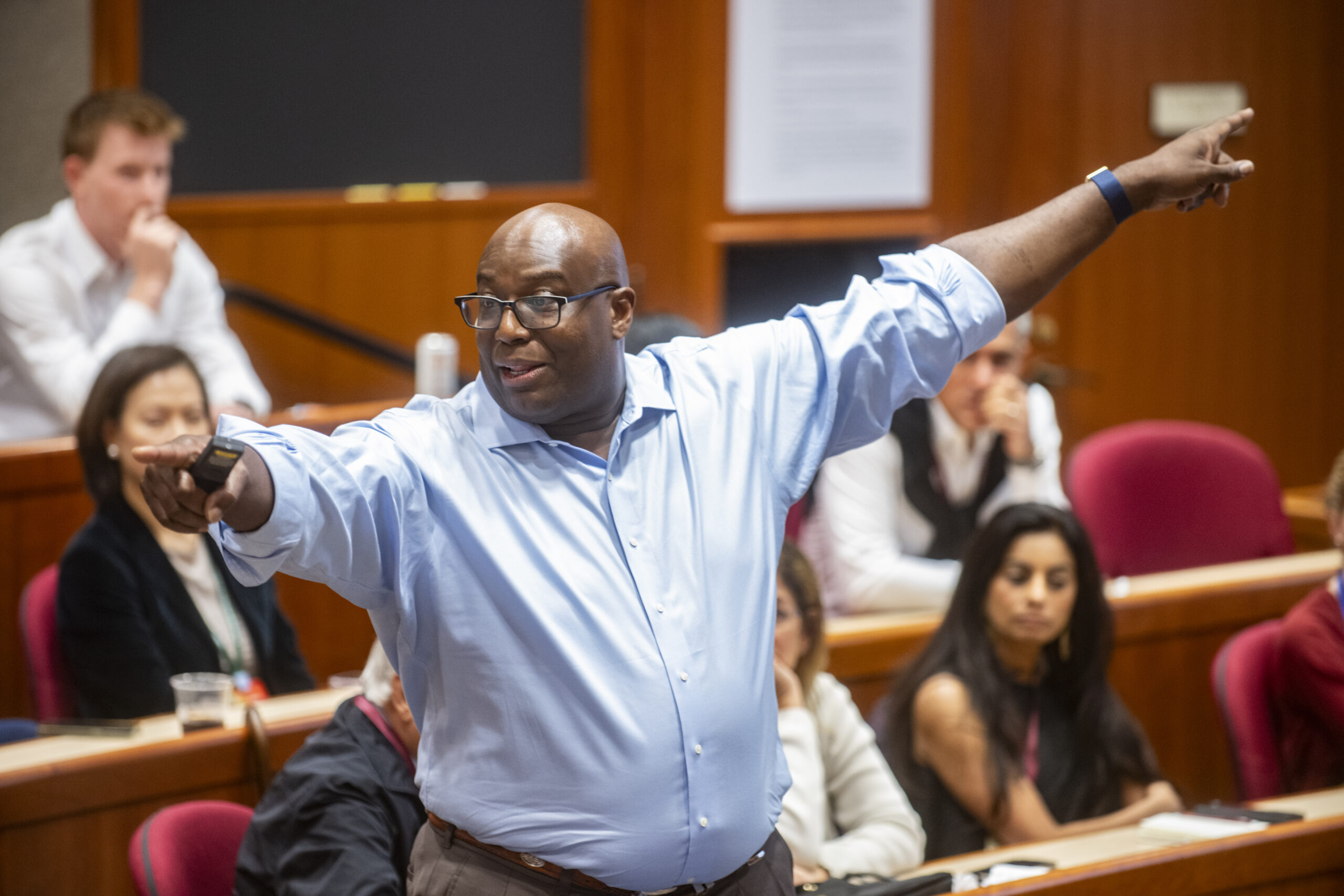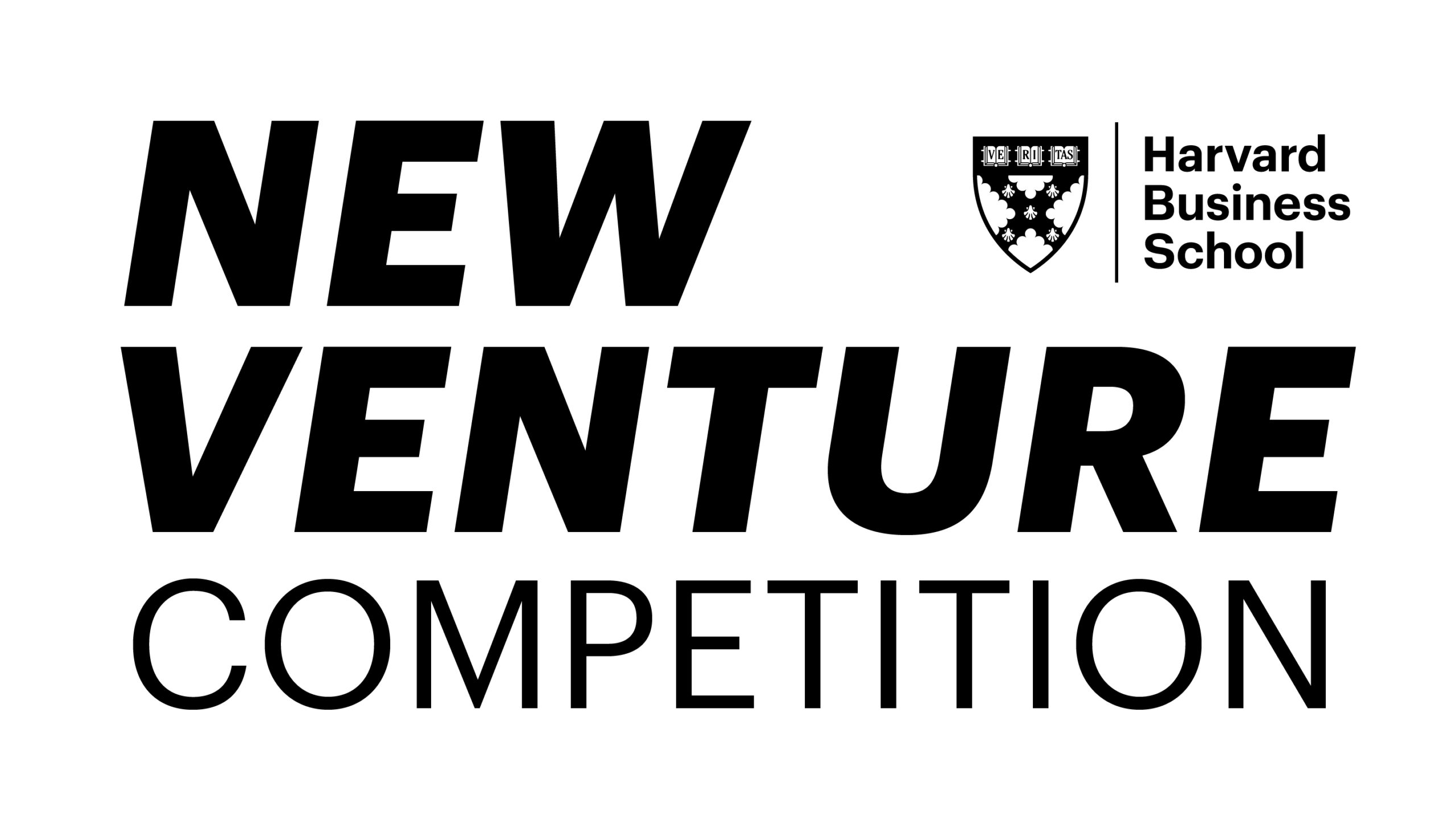In February 2025, the HBS New Venture Competition (NVC) received 35 entries to the Social Enterprise Track, from student teams across Harvard University. Sixteen semifinalists presented in early March to expert judges from the field—a mix of philanthropists, impact investors, capacity building organizations, and social entrepreneurs—who selected our four finalists based on their potential for impact, strength of their concepts, and execution of their plans.
Learn more about each finalist team below and join us on March 27 for our HBS New Venture Competition Finale! If you are outside of the Boston area, you can still join us virtually through our livestream on the NVC website.
Aidra Health
Pioneering Bridging gaps in medical equipment access by enabling sharing and redistribution through an asset-light model sustainable biopolymer production.
Ejiro Maroh, MBA 2026; David Bunn, MBA 2026; Toritse David; Joshua Ivie; Tobi Onigbogi
- How did you come up with your idea?
The idea for Aidra Health was born from personal experience and a deep sense of urgency. A loved one tragically passed away due to a hospital’s lack of essential medical equipment—devices that could have stabilized her condition and potentially saved her life. This heartbreaking event sparked a commitment to ensure that no one else suffers due to inadequate healthcare infrastructure. Aidra Health was founded to bridge the medical equipment gap in Africa, ensuring that hospitals and clinics, regardless of location, have access to life-saving tools when they need them most.
- What was the "aha" moment for your start-up?
Our "aha" moment came during our first pilot program, when we saw firsthand the overwhelming demand for our solution. Hospitals and clinics, struggling with non-functional or inaccessible medical equipment, quickly recognized Aidra Health’s impact. Seeing the immediate relief and enthusiasm from healthcare providers, who finally had the tools to offer better patient care, reinforced our mission. This validation made it clear that we weren’t just solving a problem—we were addressing a critical healthcare gap that could save lives across Africa.
- Why the HBS New Venture Competition?
NVC offers Aidra Health a platform to refine our business model, gain mentorship, and connect with aligned investors. Competing among top global innovators will help us validate our impact and accelerate growth. HBS’s network and focus on scaling high-impact ventures provide an invaluable opportunity to advance our mission of improving healthcare access in Africa.
- In one word, what does entrepreneurship mean to you?
Impact-making
Lexi
Breaking language barriers with AI-powered medical interpretation for over 30 million patients
Linh Pham, MDE 2025; Siddharth UR, MDE 2025; Jen Li, MBA 2025; Luke Fiorante, MDE 2026
- How did you come up with your idea?
Lexi emerged in the Studio course of the Design Engineering program at Harvard Graduate School of Design, where we explored how technology could address systemic challenges. As immigrants, we were drawn to the resilience of those building new lives in the U.S. That’s when we uncovered a vital issue: language barriers, which impact social integration, education, and most critically, healthcare. Through firsthand experiences and conversations with providers and patients, we saw how miscommunication could lead to distress, misdiagnoses, and poor health outcomes. We saw an opportunity to redefine healthcare communication, starting with medical interpretation and ultimately transforming how patients and providers connect across all touchpoints.
- What was the "aha" moment for your start-up?
As we were ideating, one of our teammates had to take his friend to urgent care. At the front desk of the hospital, he saw firsthand how medical interpretation worked: a virtual interpreter on a delayed, awkward video call in a loud, late-night environment. Meanwhile, a provider shared how even simple tasks became frustratingly inefficient due to language barriers. We realized that medical interpretation isn’t just about translation; it’s about trust, accuracy, patient safety, and agency. With AI advancing rapidly, we recognized this as a pivotal moment to reimagine healthcare communication and drive real impact on health equity.
- Why the HBS New Venture Competition?
NVC has been an incredible opportunity for us to refine Lexi, especially through the invaluable feedback we’ve received from mentors, faculty, and judges. Regardless of the outcome, the experience has pushed us to hone our vision, pressure-test our business model, and strengthen our strategy for scaling Lexi in healthcare. We’ve also had countless opportunities to practice pitching, connect with other entrepreneurs, and engage with experts who are driving change in the industry. This competition has given us the momentum and insights to take Lexi to the next level.
- In one word, what does entrepreneurship mean to you?
Craft
Playlish
Engaging kids in Kazakhstan with an AI-driven simulation game that makes learning English fun
Assel Amangeldi, EdM 2025; Ranjitsinh Disale, EdM 2025; Luis Gaitan, EdM 2025; Husain Rasheed
- How did you come up with your idea?
Assel: Being from rural Kazakhstan, I always dreamed of a better future. But I knew that hard work alone wasn’t enough—I had to learn English. In our village, there were no courses, and I didn’t understand much in school. We mostly just copied things down without really learning. After a long journey, I finally learned English, and it changed my life. I got into a top university, studied with international professors, and now, I’m at Harvard. Yet, even here, I still struggle with language barriers. There are moments when I feel embarrassed and disconnected, wishing there was a space to practice and truly develop my speaking skills. That’s why I’m building Playlish—a language-learning simulation game that immerses learners in real-life social interactions, much like The Sims, but designed for building fluency through AI speech and real conversations.
- What was the "aha" moment for your start-up?
My “aha” moment came while testing our prototype—90% of students said their biggest challenge was a lack of speaking practice. While many apps focus on grammar drills, what students truly want is to speak. The rise of speech AI presents a huge opportunity, but isolated AI characters alone aren’t enough. For effective language acquisition, learning needs structure—meaningful context, structured input, scaffolding, output, and corrective feedback. Without these, technology is just a tool. It’s the pedagogy that makes it truly innovative, and that’s what Playlish is built on.
- Why the HBS New Venture Competition?
NVC offers an incredible community and a unique learning experience while building and refining our approach. Over the past four months, our team has gained valuable insights, received helpful feedback, and grown tremendously. The support from organizers and the structured process have made this competition both impactful and rewarding. It’s not just about pitching an idea—it’s about learning, iterating, and pushing our venture forward in a way that wouldn’t be possible alone.
- In one word, what does entrepreneurship mean to you?
Transformation
Remarcation
Fostering the autonomy of disabled users in public space through information justice
Hannah Wong, MArch 2025; Jia Wen Goh
- How did you come up with your idea?
Hannah: As the first legally blind student to attend the Harvard Graduate School of Design, I began Remarcation as a way to think about the accessibility problems I was facing in the built environment. Originally designed to address my tendency to bump into glass walls, Remarcation has evolved from a small-scale intervention into a comprehensive framework that bridges the objectivity of space with the subjectivity of experience.
- What was the "aha" moment for your start-up?
Architecture is a field that focuses on visual representation. Being blind, it was impossible for me to design in the same way as my peers. Learning from my mentors at the Social Innovation and Change Initiative at the Harvard Kennedy School, I realized I could be most impactful not by trying to adapt to current design practice, but instead creating a design practice born from the expertise of my lived experience. Using information justice to bring power and autonomy to disabled users, Remarcation is an homage to and a celebration of the disabled perspective.
- Why the HBS New Venture Competition?
HBS and NVC bring together an incredible array of talented experts from across sectors and across the globe. It was important for us to draw from the deep well of their knowledge and experience and learn as much as possible. As a result of the feedback loop and iterative process of the competition, we have generated and implemented a plethora of strategic changes that maximize our impact.
- In one word, what does entrepreneurship mean to you?
Empowerment

